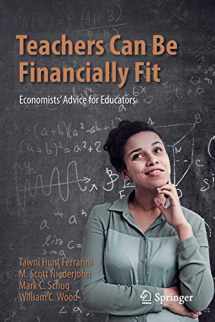
Teachers Can Be Financially Fit: Economists’ Advice for Educators
Book details
Summary
Description
This book uses relatable case studies to dispense practical financial advice to educators. Written by an expert team of four award-winning economics educators, the book provides an engaging narrative specifically designed for teachers and their unique financial needs.
Educators are attracted to the teaching profession for numerous reasons. Prospective teachers enter the profession believing it offers a certain level of job security and good benefits, usually including a defined-benefit, state-funded pension. But things are changing. Pensions vary widely from state to state and even within school districts. Many private schools do not offer even basic 403(b) saving plans and, when they do, they are often not very generous. Much the same can be said of many charter schools and private colleges and universities.
The book consists of fourteen chapters covering a comprehensive group of topics specifically curated for educators teaching at the K-12 and university level, including saving for retirement, managing debt, investment strategies, and real estate. Each chapter begins with a case study of an educator in a specific financial situation, which sets the scene for the introduction and explanation of key concepts. The chapters include a Q&A section to address common questions and conclude with a "Financial 911" focusing on a financial emergency related to the chapter topic.

We would LOVE it if you could help us and other readers by reviewing the book
Book review



